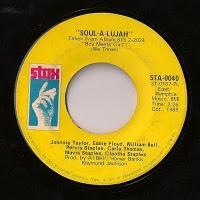

Read the passages about Burke’s amazing grandmother, and then try, just try to listen to his song “Christmas Presents from Heaven” without wiping a tear from your eye. "Looking to Get Lost" contains a helluva look, though, at the larger than life singer, preacher and mortician christened the King of Rock 'n' Soul – rife with humor and, yes, sadness. Had things worked out differently, perhaps Guralnick would have given Burke the full book treatment he craved and probably deserved. Perhaps even more touching is the second longest entry, on Burke, who legendary producer and longtime Sarasota resident Jerry Wexler called “the best soul singer of all time, hands down – with a borrowed band.” Guralnick’s appreciation for Burke’s singing prowess matches Wexler's, which makes it all the more poignant when Guralnick describes his friendship with Burke, and their temporary falling out. The country singer – from Fort Fairfield, Maine, of all places – must overcome a crippling case of alcoholism and other assorted demons that make you by turns love, pity, hate and admire the man. There are also fine portraits of two authors, Lee Smith and Henry Green, written with the same alluring mix of verve, wit and compassion.Ĭurless receives the lengthiest treatment with 71 pages that read like a gripping novella that will, I should warn, break your heart. Like “Feel Like Going Home,” “Looking To Get Lost” is a captivating anthology of music figure portraits. It ranges from household names such as Ray Charles, Johnny Cash and Eric Clapton to more obscure blues, country and soul legends like Lonnie Mack, Dick Curless and Solomon Burke. Peter Guralnick has been writing smart, loving books about popular music now for over a half century with his latest “Looking To Get Lost: Adventures in Music and Writing” (2020, Little, Brown and Company) as richly researched and thoughtfully presented as his landmark 1972 book “Feel Like Going Home: Portraits in Blues and Rock ‘N’ Roll.”



The best music writing comes from a place of love, a love for the music, and at least a certain level of empathy for the individuals who make the music. The best music writing enthralls and entertains and ultimately draws the reader to the music itself, leading to discoveries, deep dives and just a greater appreciation of pop culture in general.


 0 kommentar(er)
0 kommentar(er)
